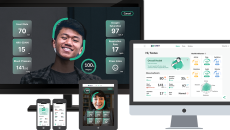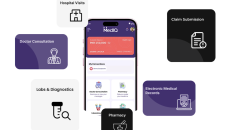Global
The funding comes on the heels of Carta Healthcare’s acquisition of Realyze Intelligence last year.
The announcement comes less than a year after Dexcom announced a strategic partnership and $75 million investment in the health-tracking ring maker.
The announcement comes less than a year after Dexcom announced a strategic partnership and $75 million investment in the health-tracking ring maker.
HIMSS25
While telehealth remains popular with patients after the pandemic, Scott Wilson, AVP of enterprise care solutions at Teladoc, warns that issues around regulation and payment may present barriers to its continued growth.
The company will use the funds to bring its disease management platform to more markets.
The company will use the funds to bring its disease management platform to more markets.
Video data is being used for quality assurance and improvement while AI provides insights and information which helps physicians learn more about surgery, say Transform Health Partners' Dr. Peter Billing and Medtronic's George Murgatroyd.
This follows the clearance for heart rate measurement on the FaceHeart mobile app in 2023.
It offers end-to-end, AI-driven digital ecosystem solutions for hospitals and insurers.
Brad Smith is the third person in the world to receive Neuralink's brain-computer implant and the first person with ALS.








